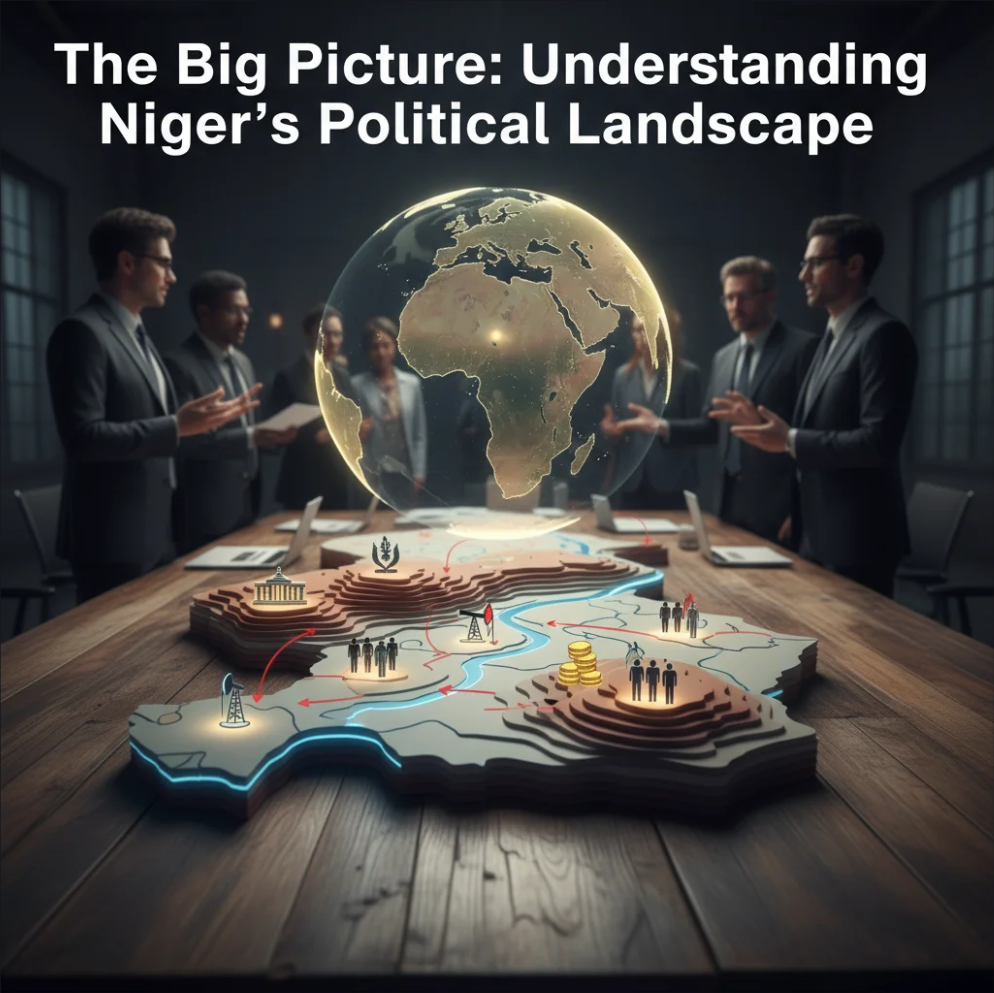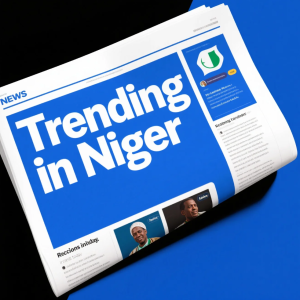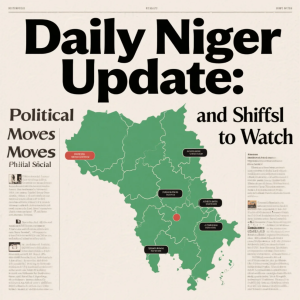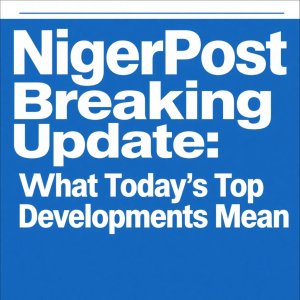Niger has been undergoing major political shifts since the coup of July 26, 2023, when President Mohamed Bazoum was deposed and a military junta led by General Abdourahamane Tiani (Brigadier-General at the time) took power.
These changes have brought considerable effects on governance, civil liberties, the economy, and how people experience everyday life.
Here’s what is happening, and what it means for Nigeriens.
1. Transition & Power Structures
- After the coup, the military junta dissolved the constitution and all political parties. AP News+2World Bank+2
- A transition charter was established, replacing the constitution, and the government aims for a five-year transition period before civilian rule returns. World Bank+2AP News+2
- During the transition, General Tiani was sworn in as President under the new charter. He also received the rank of General. AP News+1
2. Governance & Civil Rights
- Civil society and political opposition have been restricted. Media freedom has declined, with arbitrary detentions of former officials and journalists. Human Rights Watch+2Civicus Monitor+2
- A consultative/advisory body named the Consultative Council for Refoundation (CCR) was created in 2025 to advise the regime. This replaces the dissolved National Assembly. World Bank+1
- The number of officially recognized political parties is to be limited under new transition rules. Existing parties may be abolished and replaced under stricter regulation. AP News+1
3. Security, Foreign Relations & Resource Policy
- Niger faces ongoing violent threats from extremist insurgent groups (linked to al-Qaida, Islamic State, etc.) especially in regions such as Tillabéri and Diffa. This has big implications for daily life, displacement, schooling, and safety. World Bank+2The Guardian+2
- The government has moved to assert greater control over natural resources: revoking or renegotiating foreign licenses for uranium and oil operations, e.g. Orano over uranium, and evicting officials connected to foreign companies involved in the oil sector. Geopol Report+1
- Diplomatic alignments are shifting: Niger has distanced itself from Western partners, expelled French forces, closed some foreign military accords, and sought new alliances (e.g. with Russia, and through the Alliance/Confederation of Sahel States). Geopol Report+2African Futures+2
4. Policy Effects on Daily Life
- Price shocks & shortages: Sanctions and disrupted trade after the coup have caused inflation and increased costs for basics—food, medicinal supplies, other essential imports are harder to obtain. Peoples Dispatch+2World Bank+2
- Social safety measures: The government has introduced subsidized inputs for farmers (e.g. seeds/fertilizers), reduced prices on certain staple goods, and free health/entry services for vulnerable groups (children under 5, elderly women). These are coping measures intended to alleviate hardship. Peoples Dispatch
- Infrastructure & services: Disruption in mutual trade (e.g. border closures) hampers supply chains. Also, floods recently have damaged thousands of homes, schools, affecting education and livelihoods. World Bank+1
5. Challenges & Uncertainties Ahead
- Rule of Law & Corruption: Governance reforms are underway, but transparency remains weak; procurement and oversight have seen setbacks under the junta, particularly in defense spending. IMF+1
- International Aid & Funding: With sanctions, foreign aid is reduced or more conditional, affecting government capacity to deliver essential services. World Bank+2AP News+2
- Public dissent vs civic space: Reduced civil liberties, suppressed media, and political opposition create tension. How the government handles dissent, human rights, and inclusivity will affect stability. Civicus Monitor+1
Conclusion
Understanding Niger’s political landscape means seeing how deep the changes go: from power structures to foreign alliances, and from big-picture governance to how people buy food, go to school, access healthcare, or afford their daily lives.
As the junta promises transition and reforms, the lived reality of Nigeriens depends on whether policy shifts translate into tangible improvements, reduced insecurity, fairer resource distribution, and restored rights.




